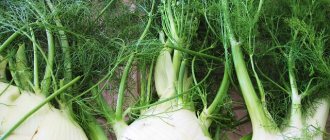After the birth of a baby, mothers seriously think about the question of what they can drink and what they cannot. Everyone has long known that warm drinks have a good effect on the lactation process, but what kind of drinks it may contain. Teas come to mind first. But at this moment the young mother begins to doubt whether such a drink will be safe for her baby. If yes, which one is better to choose. Today we will talk about black tea, most people prefer it due to its taste and the energy boost that they get after drinking it. However, is it safe and beneficial for a nursing mother? You will find out about this by reading the article.
Is it possible to have black tea while breastfeeding?
This drink contains up to 300 valuable components. A special place is occupied by ascorbic and nicotinic acid, phosphorus, iron, potassium, tannins and essential oils. But along with these biologically active compounds, caffeine is also present. Its content in tea is significantly lower than in coffee. However, 100 grams of the product still contains as much as 40% of this substance. Therefore, you should take black tea with caution, taking into account all the risk factors.
You need to know that only a percentage of the caffeine consumed by the mother comes into breast milk. However, if you abuse tea, especially black tea, then a few percent can become critical for the baby’s body. It is also worth understanding and realizing that the effect of caffeine contained in tea lasts longer than in coffee. And, therefore, it remains longer in the mother’s body, and in particular in breast milk. To minimize the risk of consequences from caffeine, a young mother should drink no more than two cups of black tea a day, while trying to brew a weak drink.
In addition, you need to understand that when drinking tea, you should eliminate all caffeine-containing products from your diet. Otherwise, you will get an excess of this substance and greatly harm the baby.
Drinking black tea does not increase the volume of lactation, but does not reduce it either. If you drink a warm drink, this will help to expand the ducts in the mammary glands, which will stimulate a better outflow of milk, and therefore will significantly simplify the baby’s task during feeding.
I drank black tea, but in limited quantities. I brewed myself a weak drink for the first time when my son was 3 months old. It did not cause any atypical reactions in the baby. After a month I decided to add milk to my tea. Just a little bit at first. My son took it well, so I increased this portion. It’s surprising that before I gave birth, I didn’t even understand how people drink tea with milk.
Consequences for baby's health
If a mother follows all the rules and recommendations, she can easily avoid the negative effects of tea herself, as well as protect her child from the consequences.
So, what are the consequences of improper or excessive consumption of black tea for the baby’s body:
- The baby may suddenly experience sleep disturbances. He will become restless, wake up often, and be capricious. There is even a risk of developing insomnia.
- Problems may arise in the functioning of the digestive (including disorders and vomiting) and excretory systems.
- Allergic reactions. They are possible both for the tea itself and for the substances that are added to it. Therefore, you should exclude all drinks containing flavorings, flavorings and pieces of dried fruit. You also need to wait a while before adding lemon or milk to your tea. Let the child first adapt to the fact that the mother began to drink just pure black tea.
Which tea is better to drink: green, black or white?
High-quality freshly brewed tea will help with low blood pressure, loss of energy, apathy and drowsiness. But for hypertension, nervousness and increased excitability, it is better to replace it with other drinks. Let's try to figure out what type of tea is preferable for a nursing woman.
Green tea is considered the healthiest: it is rich in biologically active substances, vitamins and antioxidants.
Natural tea leaves have not only tonic, but also healing properties:
- Restores immunity;
- Strengthens the heart and blood vessels;
- Activates mental activity;
- Purifies the blood and promotes weight loss.
The benefits of drinking green tea are obvious, although it must be remembered that unprocessed tea leaves contain the highest concentration of theine. To avoid negative effects on the baby, you should drink weak green tea in the first half of the day.
Combinations of green tea with lemon, jasmine, mint or lemon balm are harmonious - these herbs neutralize the stimulating effect.
Black tea
It is a fermented tea leaf. It has the same properties as green, but to a lesser extent. By the way, it also contains significantly less of the nervous system stimulant - theine itself. It has pronounced astringent and adsorbing properties, therefore it is used to normalize the functioning of the digestive system.
As for tea with milk, its benefits are very doubtful. A small amount of milk or cream will indeed soften the invigorating effects of theine, but this option is only suitable for those mothers whose baby reacts normally to cow's milk.
White tea
Obtained from tea buds covered with whitish hair. Contains a small amount of theine, but white tea contains much more antioxidants and other healing substances.
The healing and rejuvenating properties of this elite drink are widely known, for which this type of tea is highly valued all over the world.
Of all types of tea, white is the safest and most desirable during feeding.
Jasmine tea
Green tea with jasmine has a pleasant taste and aroma. Jasmine flowers have sedative properties, promote relaxation and easy sleep. In addition, jasmine tea relieves symptoms of postpartum depression.
Red tea (Hibiscus tea) is obtained from the dried flowers of the Sudanese rose; it is very useful, but is contraindicated during breastfeeding, as it can provoke diathesis in the child.
Black tea with milk during breastfeeding
Some mothers are afraid to pour milk into tea. They fear that the baby may have an allergic reaction. However, everything is not so scary. Firstly, not all children have lactose intolerance, and secondly, the mother can drink such an amount of milk that it will be invisible to the baby’s body.
In any case, first you need to adapt yourself and your baby to black tea in its pure form, and only then add milk to it. If you make this drink the first time, then you won’t understand what exactly your little one is allergic to.
Learn more about black tea with milk.
In fact, adding milk to tea is very beneficial. Thus, we use less brewing volume and, accordingly, reduce the caffeine content in the finished drink. In addition, thanks to the valuable calcium content in milk, we restore the balance of water and this macronutrient in the body.
If the baby still has some kind of atypical reaction, then you should not add milk to the tea yet. But this does not mean that you will exclude this product from your diet forever. Please try again in a couple of months.
Tea and lactation
Young mothers may have a very controversial issue about drinking tea while breastfeeding their baby. Some believe that such a drink can increase the volume of milk produced. Others consider this benefit not so significant and exclude tea from their diet due to the fact that it contains caffeine. There is a point here: tea does contain such an active substance as caffeine, but its content is several times lower than that of coffee.
In addition, this drink has a rich beneficial composition, which, if the recommendations are followed correctly and not abused, benefits both the health of the mother and the child. As for the opinion regarding increasing lactation, it has already been proven that it is wrong.
With proper use of any warm tea, the expansion of the ducts of the mammary glands is stimulated, due to which the flow of milk accelerates and better enters the baby’s body during the act of sucking. Don’t forget about the invigorating effect of tea, which is important when sleepless nights appear in your life.
Based on this, it becomes clear that mother can drink tea in limited quantities, but she needs to choose it correctly, brew it and drink it. Then you will not only not harm the body, but will also benefit it.
Tea with lemon
Many people, when drinking tea, throw a slice of lemon into it.
Of course, this fruit contains a high content of vitamin C, which is so necessary to strengthen the body and fight colds. In addition, it adds a pleasant taste and aroma to the tea. But you should not forget that now you are a nursing mother, which means you need to very carefully select foods in your diet. Lemon, like all citrus fruits, is a strong allergen, so it must be administered very carefully and in very tiny portions. And do not do this before the baby turns three months old. It is clear that if the slightest deviation appears, you should immediately exclude the lemon. Learn more about lemon tea.
Sweets for tea
A nursing mother should not overindulge in sweets, as this negatively affects the baby’s metabolism and digestion. Sweets often cause food allergies and diathesis, leading to stool disorders and increased gas formation, caries and excess weight. Excess sweets worsen the condition of teeth and gums and are addictive. But you shouldn’t completely limit yourself in sweets. Let's look at what treats a nursing mother can and cannot eat.
Oriental delicacies top the list of sweets that are allowed for a nursing mother. These are kozinaki, lokum, pastila and halva. Kozinaki contains nuts and seeds, which improve the condition of hair, nails and skin. This delicacy strengthens blood vessels and normalizes blood circulation, relieves nervous tension. And halva and Turkish delight, due to the content of unsaturated acids, strengthen and quickly restore the body. But such products can only be eaten if the baby is not allergic to seeds or nuts!
Dried fruits are an excellent alternative to sweets when breastfeeding. Many nursing mothers choose such treats because they are safe for the baby, have a sweet taste and complement tea well. Dried fruits are useful for lactation, they improve digestion and help with constipation in the mother. Such sweets are easily digested and absorbed after heat treatment. At the same time, they retain the beneficial properties of fresh fruits.
During lactation you can eat dates, raisins, dried apricots and prunes, and figs. Dried fruits are added to salads, compotes and main courses, and eaten separately, including with tea.
Cookies are the safest treat during lactation. But even here you need to carefully choose varieties and types. Under no circumstances should a nursing mother eat flour products with the addition of flavorings such as cinnamon, jam, etc. Such food causes constipation in the baby and the appearance of a rash on the skin.
For nursing, unleavened cookies are suitable, for which the dough is made in water without eggs, milk and butter. Oatmeal cookies, which contain a lot of vitamins, will be very healthy and tasty. In addition, such sweets are easy to prepare at home. If you don’t want to bake it yourself, take “Maria” and “Yubileinoe” biscuits.
Chocolate should be eaten no earlier than two to three months after giving birth. In this case, it should be a small piece of dark natural chocolate. Start with 25 grams and gradually increase the portion to 50-60 grams. Remember that chocolate and chocolate candies are strong allergens! And a large amount of cocoa in such products excites the baby’s nerve cells and disrupts sleep.
A nursing mother should not consume white and porous chocolate. This delicacy causes colic and severe flatulence in the child due to the high carbohydrate content. The high calorie content of white chocolate leads to problems with blood sugar levels and excess weight.
Cakes are not recommended for consumption during lactation, except for one-ingredient homemade baked goods. Confectionery products must be excluded from the diet, as they contain dyes, flavors and thickeners. When making a cake, use only water-based dough.
Apples and pears, bananas and dark-colored berries (blueberries, currants), dried fruits and nuts are well suited for the recipe. Do not use brightly colored berries or citrus fruits, cream or chocolate cream! Eat cakes 3-4 months after the start of lactation.
Marmalade and waffles can be included in the menu after 5-6 months of nursing. Waffles should be white or milky, fresh and crispy without caffeine. Don't take colored items! Viennese and English waffles are good for lactation. They contain, like classic waffles, an allergen. But at the same time, they are easier to digest, do not affect the child’s nervous system and do not disturb sleep.
As for marmalade, you need to choose a natural fruit and berry product that is prepared in accordance with GOST. The color should be natural. Red, green or yellow will do. Avoid bright crimson, orange and purple shades.
Marshmallow is suitable for babies and nursing mothers, as it does not contain milk. The delicacy is prepared from protein mass, fruit puree, sugar and jelly. Such components in small quantities are not capable of causing allergies or eating disorders. But keep in mind that dyes and flavors are added to store-bought marshmallows, which will negatively affect your well-being! Choose only vanilla marshmallows or white creme brulee marshmallows. You cannot take yellow or pink sweets!
The safest product will be a variety of marshmallows - meringue. This is a cake that contains only protein and sugar. It is better if you prepare marshmallows and meringues at home. You will find cooking recipes here.
Mint tea
This drink is not recommended for pregnant women and nursing mothers.
- Firstly, this plant lowers blood pressure, which can have a bad effect not only on the mother’s well-being, but also on the baby’s health. For him, this can have serious consequences, including heart rhythm disturbances and, as a consequence, cardiac arrest. But this happens with frequent and excessive use.
- Secondly, such tea can reduce the amount of milk produced. This drink is prescribed to women who want to stop breastfeeding.
- Thirdly, mint is an allergenic. Therefore, in principle, it may not be perceived by the baby.
Based on this, we can conclude that it is better to delay drinking such tea or replace it, for example, with a decoction of chamomile or lemongrass.
More details about mint tea for guards.
Recommendations for choosing and drinking black tea during breastfeeding
A nursing mother needs to take care of her health and nutrition. It is important to choose products in such a way as to ensure the full development of the child. This also applies to drinks. When choosing and drinking black tea, you should adhere to the following recommendations:
- purchase a quality product without dyes, flavors and other additives;
- drink a weak drink;
- drink tea in the morning to gain energy during the day and also avoid problems sleeping at night;
- prepare the drink before drinking. When storing brewed tea, harmful substances are formed.
Attention! It is not recommended to drink tea brewed using tea bags while breastfeeding. Low-grade raw materials are used for this product. In addition, there is no information about the quality of the bag itself.
Black tea quenches thirst. In addition, it has beneficial properties. When warm, this drink is perfect for the lactation period. But you should remember that you can use it in moderation and only freshly brewed.
Rules of use
Of course, when consuming any product, you need to follow certain recommendations so as not to harm your baby’s health in any way:
- It is very important to start drinking black tea in small quantities. A mother should watch how her baby reacts to a new drink. If atypical reactions occur, you should exclude this tea. If everything is fine with the baby, then gradually increase the portion.
- Do not overuse black tea. The maximum serving is two cups per day.
- Avoid tea additives, flavorings, flavorings, and dried fruits, especially if these products can reduce lactation (such as mint).
- Drink only loose leaf tea, not bagged tea.
- Pour hot 80 degree water into the tea
- For brewing, it is better to use ceramic or porcelain dishes. Do not forget to pour boiling water over the container before pouring the tea leaves.
- Drink fresh tea.
- Avoid strongly brewed drinks.
Young mothers can drink black tea. But try to drink no more than two cups a day. Don’t forget that the tea should be weak to minimize the caffeine concentration. Now you are convinced that such a drink does not increase lactation, but in combination with some herbs, in particular mint, can, on the contrary, reduce it. Tea consumed warm stimulates the expansion of the ducts, which promotes the flow of milk to the breast, which is also important for the breastfeeding process. In addition, it contains a fairly large complex of substances that are so useful for the normal life processes of mother and child.
What are the benefits of tea during lactation?
The choice of the type of this tonic drink must be approached with all responsibility: the components of any product eaten or drunk penetrate into breast milk and can harm the baby. Of course, this does not mean that mother will have to completely deny herself a cup of aromatic tea drink, because during lactation the benefits of tea are due to the following:
- replenishing the body's water supply and quenching thirst;
- has a diaphoretic and diuretic effect;
- stimulation of milk production with warm drinks;
- has a tonic and invigorating effect.
However, not all types of tea are beneficial for lactation, especially tea bags. Also, forcing yourself to drink a large amount of the drink supposedly “to increase lactation” is not worth it due to the excessive load on the kidneys.











